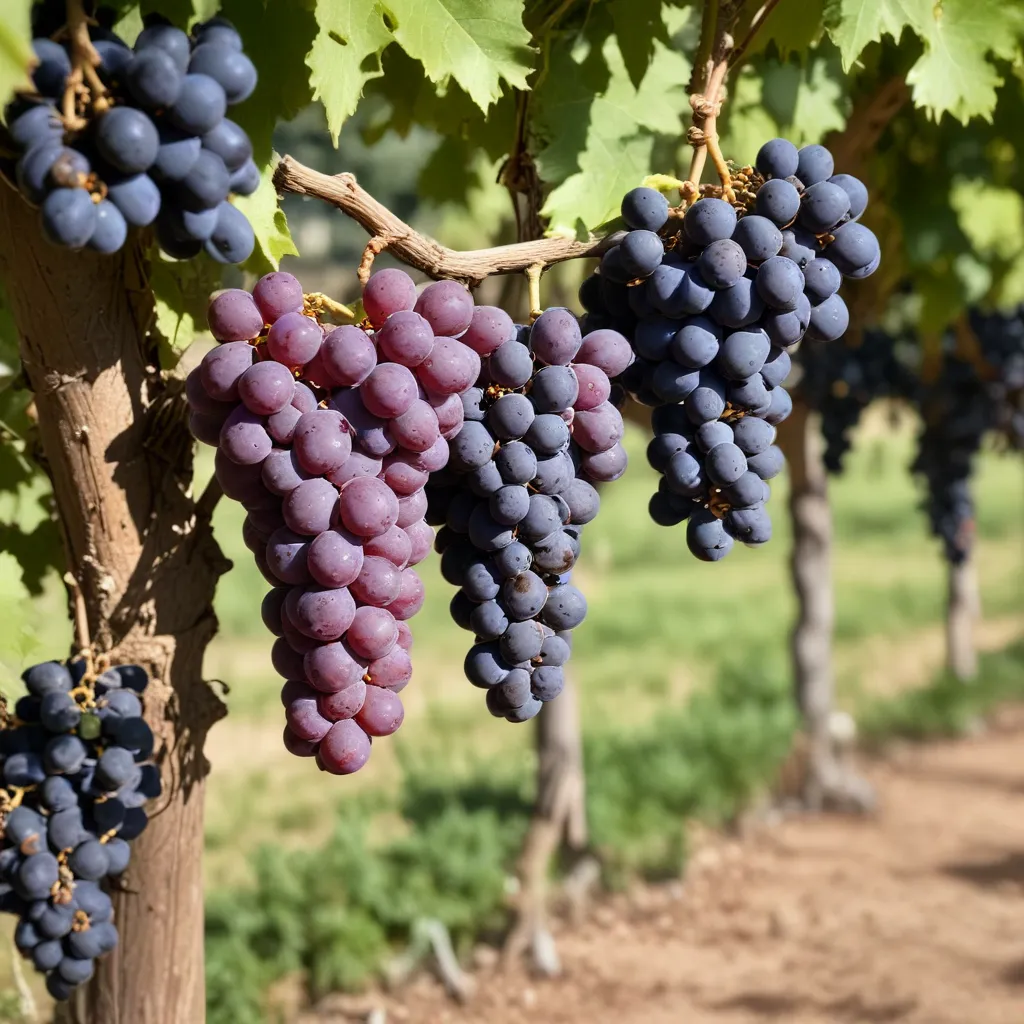
Behind the deep, complex flavors of fine wine lies a fascinating world of antioxidant-rich grape varieties that have withstood the test of time. These heritage grapes, often indigenous to specific regions, harbor a treasure trove of beneficial compounds that not only contribute to wine’s sensory appeal but also hold the potential to promote human health. At the Wine Garden Inn, we are committed to celebrating these age-old grape cultivars and uncovering the nuances of their antioxidant profiles.
Grape Varieties
Heirloom Grape Cultivars
From the ancient vineyards of Europe to the emerging wine regions across the globe, heirloom grape varieties have long been the foundation of winemaking. These grapes, often passed down through generations, possess a distinct genetic makeup that sets them apart from modern, commercially-driven cultivars. Varieties such as Tempranillo, Nebbiolo, and Touriga Nacional are prime examples, boasting complex flavor profiles and a deep connection to the terroir in which they thrive.
Indigenous Grape Cultivars
Alongside the heirlooms, indigenous grape cultivars have also captured the attention of wine enthusiasts and health-conscious consumers alike. These grapes, native to specific regions, have evolved to flourish in their local environments, developing unique antioxidant compositions that reflect the influence of soil, climate, and microbial interactions. Grapes like Aglianico from southern Italy, Alvarinho from Portugal, and Zweigelt from Austria are just a few of the many indigenous gems that grace our cellar.
Endangered Grape Cultivars
In the face of globalization and the dominance of a few high-yielding grape varieties, many endangered grape cultivars are at risk of disappearing. These vinous treasures, often cultivated on a small scale, harbor a wealth of genetic diversity and potential health benefits. By championing the preservation of these endangered grapes, we not only safeguard their cultural and historical significance but also unlock new frontiers in the realm of wine’s antioxidant profiles.
Grape Antioxidant Profiles
Phenolic Compounds
At the heart of the health-promoting properties of heritage wine grapes lies their rich phenolic content. These compounds, which include flavonoids, stilbenes, and phenolic acids, are responsible for the vibrant colors, complex flavors, and potential health benefits associated with these varietals. Through in-depth analysis, we have uncovered the diverse phenolic profiles of our heritage grapes, revealing unique patterns of distribution and concentration that contribute to their individual characters.
Flavonoid Content
Flavonoids, a subclass of phenolic compounds, are particularly noteworthy in heritage wine grapes. Compounds like anthocyanins, responsible for the deep reds, and flavonols, imparting subtle hues and structures, are found in abundance in these varietals. Our research has shown that the flavonoid content of heritage grapes can far exceed that of more commonly grown cultivars, making them true antioxidant powerhouses.
Polyphenol Diversity
Beyond the individual phenolic and flavonoid components, heritage wine grapes also boast a remarkable polyphenol diversity. This complexity of compounds, each with their own unique structures and functions, creates a synergistic effect that amplifies the potential health benefits. By delving deeper into the polyphenol profiles of our heritage grapes, we continue to uncover the nuanced and multifaceted nature of these viticultural treasures.
Winemaking Practices
Fermentation Techniques
The manner in which we approach winemaking with heritage grapes is crucial in preserving and emphasizing their antioxidant potential. Our traditional fermentation methods, such as extended maceration and gentle pressing, allow for the optimal extraction and retention of these beneficial compounds. Complementing these time-honored techniques, we also explore modern approaches that harness the latest scientific advancements, ensuring that the full spectrum of antioxidants is captured in our wines.
Aging and Maturation
The journey of our heritage wine grapes doesn’t end at fermentation. The oak barrel influence and lees interaction during the aging and maturation process further contribute to the development of the wines’ antioxidant profiles. By carefully monitoring these parameters and adjusting our practices accordingly, we strive to showcase the full depth and complexity of the antioxidant compounds present in our heritage varietals.
Health Benefits
Cardiovascular Effects
Numerous studies have highlighted the cardiovascular benefits associated with the consumption of heritage wine grapes. The rich polyphenol content, particularly the presence of resveratrol, has been linked to improved blood pressure regulation and favorable modulation of cholesterol levels. By incorporating these antioxidant-rich grapes into our winemaking, we aim to provide our guests with a truly holistic wine-drinking experience.
Neuroprotective Properties
Beyond the cardiovascular realm, the antioxidant compounds found in heritage wine grapes have also demonstrated neuroprotective properties. Compounds such as flavonoids and stilbenes have been shown to support cognitive function and reduce neuroinflammation, offering promising implications for brain health. As we continue to explore the depth of these benefits, we are excited to share our findings with our discerning guests.
Sustainability Considerations
Biodiversity Conservation
Inherent to our commitment to heritage wine grapes is a deep respect for biodiversity conservation. By championing the cultivation and preservation of these unique cultivars, we are not only safeguarding their genetic diversity but also contributing to the overall ecological balance of our vineyards. This holistic approach allows us to minimize our environmental footprint while celebrating the rich tapestry of our viticultural heritage.
Market Trends
The growing consumer demand for artisanal, nutrient-dense products has fueled the rising popularity of heritage wine grapes. Health-conscious consumers are increasingly seeking out wines that not only delight the palate but also offer tangible health benefits. By positioning our heritage wine offerings as part of this artisanal wine movement, we are able to cater to the evolving preferences of our discerning guests.
At the Wine Garden Inn, we take great pride in our commitment to showcasing the remarkable antioxidant profiles of heritage wine grapes. From the ancient vineyards to the carefully crafted bottles on our shelves, each sip offers a captivating journey through the rich diversity of these viticultural treasures. As we continue to delve into the complexities of these grapes, we invite you to join us in exploring the boundless potential of Grape to Glass.
